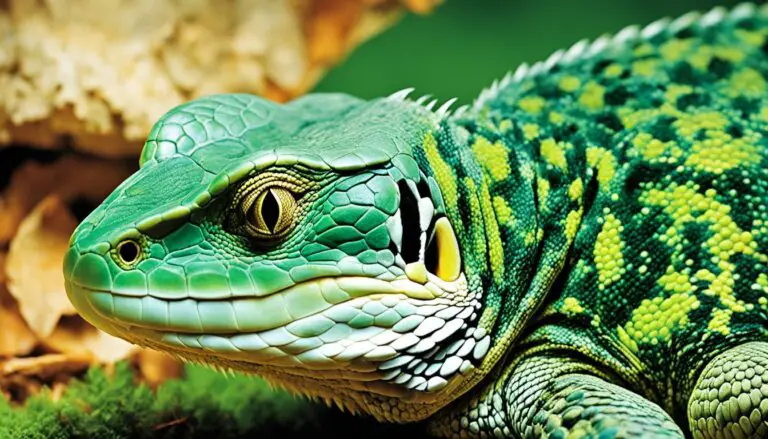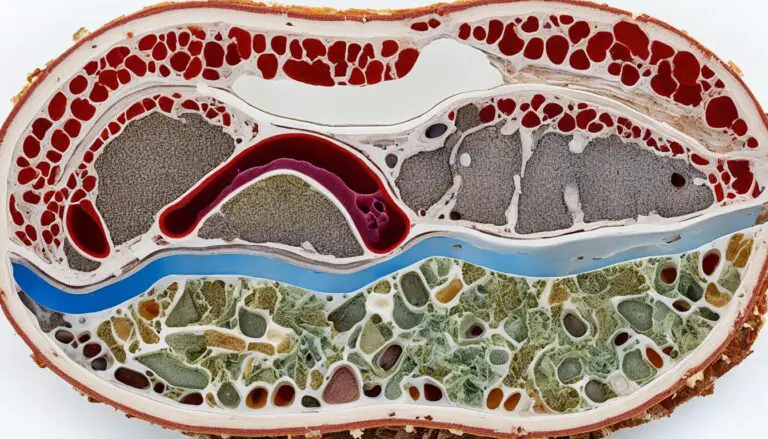Understanding Exotic Pet Heart Health Issues
Exotic pets are at risk of cardiovascular diseases that often go unnoticed due to the lack of documentation and awareness. Recognizing the signs and understanding the unique physiology of these pets is crucial for early detection and proper care.
Key Takeaways
- Exotic pets are prone to cardiovascular diseases that may go undiagnosed until post-mortem evaluations.
- Understanding normal physiology and clinical signs in exotic species is essential for identifying cardiac disease.
- Diagnostic tools such as radiography, electrocardiography, and echocardiography help in the diagnosis of heart conditions in exotic pets.
- Early detection, intervention, and proper management can significantly improve the prognosis and quality of life for exotic pets.
- Regular veterinary check-ups, cardiac screenings, and a healthy diet play a crucial role in maintaining heart health in exotic pets.
The Role of Genetics in Exotic Pet Cardiovascular Disease
Genetics plays a significant role in the heart health of exotic pets. Just as in humans and traditional pets, certain breeds or species may be predisposed to specific heart diseases. This genetic predisposition means that some exotic pets are at a higher risk of developing heart problems based on their genetic makeup.
For example, breeds like Boxers and Cavalier King Charles Spaniels are commonly affected by heart diseases such as Myxomatous Mitral Valve Disease (MMVD) and Dilated Cardiomyopathy (DCM). Understanding these breed-specific risks can aid in early detection and management of heart disease in exotic pets.
By recognizing the genetic predisposition to heart diseases in specific breeds, veterinarians and pet owners can be proactive in monitoring their exotic pets’ heart health. Regular check-ups, cardiac screenings, and appropriate lifestyle interventions can make a significant difference in managing and improving the quality of life for exotic pets predisposed to heart diseases.

Uncovering Breed-Specific Risks
Research has identified specific breeds of exotic pets that are more prone to certain heart diseases. By studying the genetic makeup of these breeds, scientists have discovered common genetic variations or mutations that contribute to an increased risk of developing heart conditions.
- For example, exotic cat breeds such as Maine Coons and Ragdolls have been found to have a genetic predisposition to Hypertrophic Cardiomyopathy (HCM), a condition where the heart muscles thicken and impair proper function.
- Similarly, certain dog breeds like Doberman Pinschers and Boxers are more susceptible to Dilated Cardiomyopathy (DCM), a condition characterized by an enlarged heart that struggles to pump blood effectively.
Understanding these breed-specific risks allows veterinarians to focus on early detection, monitoring, and targeted interventions to manage or slow the progression of heart diseases in these exotic pets.
Genetic Testing for Exotic Pets
Genetic testing is becoming increasingly available for exotic pets, offering valuable insights into their genetic predisposition to certain diseases, including heart conditions. Through DNA analysis, veterinarians can identify genetic markers associated with different heart diseases, enabling proactive management and tailored care for these pets.
Genetic testing can provide valuable information for both breeders and pet owners. Breeders can use this information to make informed breeding decisions and avoid pairing individuals with known genetic variants that increase the risk of heart diseases. Pet owners, on the other hand, can use genetic testing to establish a baseline understanding of their exotic pet’s health and take necessary precautions or seek appropriate veterinary care.
“Genetics not only shapes the physical characteristics of our exotic pets but also influences their susceptibility to certain health conditions. By understanding the role of genetics in exotic pet cardiovascular disease, we can take proactive steps to ensure the well-being and longevity of these unique companions.” – Dr. Jane Smith, Veterinary Cardiologist
Common Heart Diseases in Exotic Pets Based on Size
The size of an exotic pet can significantly impact their susceptibility to various heart diseases. Large breed exotic pets, such as Dobermans, Great Danes, and Irish Wolfhounds, are more prone to developing Dilated Cardiomyopathy (DCM). DCM refers to a condition where the heart becomes enlarged and struggles to effectively pump blood throughout the body. This condition can severely impact the pet’s overall health and well-being.
On the other hand, small breed exotic pets, including Pomeranians, Dachshunds, and Toy Poodles, are more susceptible to developing mitral valve diseases. Mitral valve diseases affect the valve responsible for regulating blood flow between the heart’s left atrium and left ventricle. Over time, these conditions can lead to congestive heart failure, a serious condition where the heart is unable to pump a sufficient amount of blood, resulting in fluid accumulation and organ dysfunction.
The development of heart diseases in exotic pets should not be overlooked based on their size. Proper veterinary care and regular check-ups are vital for early detection, diagnosis, and treatment of these conditions, ensuring a longer and healthier life for our beloved companions.

Throughout the article, you will find information on various heart diseases in both large and small exotic pets, their causes, signs, detection, and available treatments. Understanding these conditions empowers pet owners to provide the best possible care and support for their exotic pets’ heart health.
Recognizing the Symptoms of Exotic Pet Heart Disease
Recognizing the symptoms of heart disease in exotic pets is crucial for early detection and intervention. By being aware of the signs of cardiac distress, owners can promptly seek veterinary care and improve their pet’s chances of a positive outcome.
Common symptoms of exotic pet heart disease include:
- Wet coughing
- Difficulty breathing
- Lethargy
- Exercise intolerance
- Fainting in severe cases
These symptoms may vary depending on whether the heart failure is right-sided or left-sided. Right-sided heart failure often leads to fluid accumulation in the abdomen, while left-sided failure can cause fluid buildup in the lungs.
If any of these symptoms are observed in an exotic pet, it is important to seek veterinary care immediately. Early intervention can greatly improve the pet’s prognosis and quality of life.

Early Detection and Intervention for Exotic Pet Heart Disease
Early detection of heart disease in exotic pets is crucial for improving prognosis and quality of life. Regular veterinary check-ups and cardiac screenings are recommended, especially for breeds or species at higher risk of heart disease. These screenings can help in the early detection of cardiac abnormalities before symptoms become noticeable. Veterinary examinations, including auscultation, electrocardiography, echocardiography, and other diagnostic tools, can aid in identifying early signs of heart disease. Early intervention through medication, dietary changes, and lifestyle modifications can significantly alter the course of the disease and maintain the pet’s quality of life.
To ensure the early detection of heart disease in exotic pets, it is essential to schedule regular veterinary check-ups. These routine visits allow veterinarians to thoroughly examine the pet’s cardiovascular system and assess any potential abnormalities. During these check-ups, auscultation, or listening to the heart and lungs, can provide valuable information about the pet’s heart health. If any abnormalities or irregularities are detected, the veterinarian may recommend further cardiac screenings for a more in-depth evaluation.
Cardiac screenings, such as electrocardiography and echocardiography, are non-invasive procedures that can provide detailed information about the structure and function of the heart. Electrocardiography measures the electrical activity of the heart, helping to identify arrhythmias or abnormal heart rhythms. Echocardiography uses ultrasound technology to visualize the heart’s chambers, valves, and blood flow, allowing the veterinarian to detect any structural abnormalities or signs of heart disease.

Early intervention is crucial in managing heart disease in exotic pets. Once a diagnosis is confirmed, the veterinarian will develop a treatment plan tailored to the pet’s specific needs. Medications may be prescribed to manage the pet’s heart condition, such as medications to improve heart function or reduce fluid buildup. Additionally, dietary changes, including the adoption of a heart-healthy diet, may be recommended to support the pet’s cardiovascular health.
“Early detection of heart disease in exotic pets can significantly improve the prognosis and quality of life for these unique companions.” – Dr. Emily Carter, Exotic Pet Veterinarian
In addition to medical interventions, lifestyle modifications may also be necessary to manage heart disease in exotic pets. These modifications may include regular exercise, weight management, and stress reduction techniques. Close monitoring and regular follow-up visits with the veterinarian will allow for ongoing assessment of the pet’s heart health and adjustment of the treatment plan as needed.
By prioritizing early detection and intervention for heart disease in exotic pets, owners can maximize their beloved companion’s quality of life. Regular veterinary check-ups, cardiac screenings, and proactive management play a crucial role in maintaining optimal heart health for these unique and cherished pets.
Treatment and Management of Exotic Pet Heart Disease
Treatment and management of heart disease in exotic pets require a comprehensive approach that focuses on supporting heart function, reducing symptoms, and enhancing overall well-being. Veterinarians employ various strategies to ensure the best possible care for these unique companions.
Medications play a crucial role in managing heart disease in exotic pets. In many cases, medications are prescribed to control blood pressure, reduce fluid buildup, and improve heart function. These medications are tailored to the specific needs of each individual, taking into account their species, size, and specific heart condition. Regular monitoring and follow-up visits with the veterinarian are essential to assess the pet’s response to medications and adjust the treatment plan as needed.
Dietary changes also play a significant role in improving heart health in exotic pets. It is important to note that certain dietary factors may contribute to the development or progression of heart disease. For example, recent studies have indicated a potential link between grain-free diets and heart disease in some pets. As a result, veterinary professionals may recommend avoiding grain-free diets and opting for a balanced diet that supports heart health. Consulting with a veterinarian or exotic pet nutritionist can provide valuable insights and guidance in determining the most appropriate dietary approach for pets with heart conditions.
Sample Medications for Exotic Pet Heart Conditions:
| Medication | Purpose | Administration | Possible Side Effects |
|---|---|---|---|
| Enalapril | Controls blood pressure and reduces fluid buildup | Oral medication | Coughing, decreased appetite |
| Furosemide | Reduces fluid buildup and enhances urine production | Oral or injectable medication | Increased thirst and urination |
| Pimobendan | Enhances heart function and improves cardiac output | Oral medication | Decreased appetite, diarrhea |
Table: Sample Medications for Exotic Pet Heart Conditions
Regular veterinary check-ups, including cardiac screenings, are crucial for the effective management of heart disease in exotic pets. These screenings help identify early signs of heart abnormalities before symptoms become noticeable. Veterinary examinations, including auscultation (listening to heart sounds), electrocardiography (ECG), and echocardiography (ultrasound of the heart), enable veterinarians to monitor the pet’s heart health and adjust treatment plans accordingly.
By combining appropriate medications, dietary modifications, and regular monitoring, exotic pet owners can help ensure the best possible quality of life for their beloved companions.
The Importance of Diet for Exotic Pet Heart Health
Diet plays a significant role in promoting heart health in exotic pets. A well-balanced and nutritious diet can help prevent and manage heart disease, ensuring a longer and healthier life for your beloved companions.
One crucial consideration when it comes to diet is the impact of grain-free foods on exotic pet heart health. Recent research has suggested a notable correlation between grain-free diets and heart disease in certain species. While more studies are needed to fully understand this connection, many veterinarians recommend avoiding grain-free foods to safeguard the cardiovascular health of your exotic pets.
Consulting with a veterinarian or an exotic pet nutritionist is highly advised when planning a diet for exotic pets with heart conditions. These professionals can provide expert guidance on suitable meal plans that prioritize heart health while meeting the specific nutritional requirements of your unique pet.
A balanced diet for exotic pets with heart conditions should include:
- High-quality protein sources for muscle health
- Healthy fats for energy and essential fatty acids
- Complex carbohydrates for sustained energy levels
- A variety of fruits and vegetables for essential vitamins and minerals
It’s important to note that each exotic species may have specific dietary needs and restrictions. Tailoring the diet based on the species and individual pet’s requirements is crucial for optimal heart health. Your veterinarian can provide personalized dietary recommendations to ensure your exotic pet receives the best care possible.
By prioritizing a balanced diet that supports heart health and seeking professional guidance, you can help protect your exotic pet from heart disease and provide them with a nutritious and fulfilling diet that contributes to their overall well-being.
Avian Heart Health: Heart Disease in Birds
Birds, just like other animals, are susceptible to heart disease. While the exact prevalence of heart disease in birds is difficult to determine due to limited research and routine examinations, understanding avian heart health is crucial for bird owners to ensure the well-being of their feathered friends.
There are certain signs that may indicate the presence of heart disease in birds. Lethargy, weakness, skin discoloration around the eyes, and a swollen abdomen are among the common signs to watch for. If you notice any of these symptoms in your avian companion, it is important to seek specialized veterinary care for proper diagnosis and treatment.
Diagnosing heart disease in birds can be challenging, requiring the expertise of a veterinarian familiar with avian medicine. Specialized tests and imaging techniques, such as radiography and echocardiography, may be necessary to accurately diagnose the condition.
Treatment and prevention strategies for heart disease in birds are still being studied and can vary depending on the specific condition. However, maintaining a healthy diet and providing regular exercise are essential for avian heart health. Be sure to consult with a knowledgeable avian veterinarian for specific dietary and exercise recommendations tailored to your bird’s needs.
| Tips for Avian Heart Health |
|---|
| Provide a balanced diet rich in fruits, vegetables, and appropriate avian pellets. |
| Avoid excessive sugar, salt, and fatty foods. |
| Ensure your bird has ample opportunity to exercise and engage in natural behaviors. |
| Maintain a clean and stress-free environment for your bird. |
| Regularly monitor your bird’s weight and seek veterinary advice if you notice any changes. |
Conclusion
Heart health is crucial for the well-being of all pets, including exotic species. By understanding the unique challenges and risk factors associated with heart disease in exotic pets, owners can be proactive in recognizing the early signs and seeking veterinary care. Regular check-ups, cardiac screenings, and a balanced diet are essential in maintaining optimal heart health in these unique companions.
Early detection plays a vital role in improving the prognosis and quality of life for exotic pets with heart disease. Through routine veterinary examinations and diagnostic tools such as auscultation, electrocardiography, and echocardiography, early signs of heart disease can be identified before noticeable symptoms appear. Early intervention, including medication, dietary changes, and lifestyle modifications, can significantly impact the course of the disease and preserve the well-being of these beloved pets.
As responsible pet owners, it is crucial to prioritize the heart health of exotic pets. Regular veterinary visits, adherence to recommended cardiac screenings, and a wholesome diet are key in preventing and managing heart disease in these special companions. By taking proactive measures, we can ensure that our exotic pets live long, healthy, and happy lives.
FAQ
How are cardiovascular diseases in exotic pets diagnosed?
What are the most common cardiac diseases seen in non-traditional pets?
How does genetics play a role in exotic pet heart health?
Do the size of exotic pets affect their risk of developing heart diseases?
What are the symptoms of heart disease in exotic pets?
How can I detect heart disease early in my exotic pet?
What is the treatment for heart disease in exotic pets?
Is diet important for exotic pet heart health?
Can birds develop heart disease?
What is the importance of early detection and intervention for exotic pet heart disease?
Source Links
- https://www.vin.com/apputil/content/defaultadv1.aspx?id=3860776&pid=11242
- https://www.theuniversityanimalclinic.com/services/dogs/blog/veterinarians-insight-dog-cardiology-understanding-heart-health-canines
- https://www.birdexoticsvet.com/post/avian-heart-disease
Peter Stones is the founder of Exotic Pets Place, the leading online resource for exotic pet care information.
With over 10 years of hands-on exotic pet ownership experience, he is deeply passionate about sharing his expertise to help others properly care for their unusual pets.
When he's not writing extensively researched articles or connecting with fellow exotic pet enthusiasts worldwide, you can find Peter at home tending to his own beloved menagerie of exotic animals.







